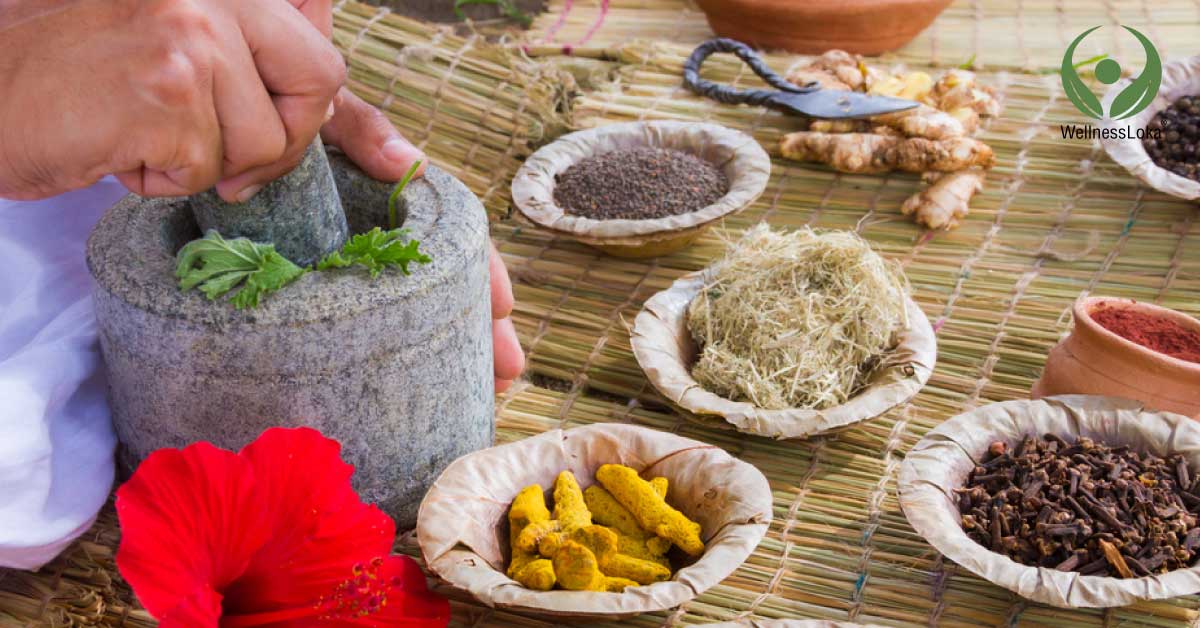Ayurveda And Wellness

The state of wellness differs from one individual to other.
The National Institute of Wellness, USA, defines the Wellness as “an active process through which people becoming aware of and making choices toward a more successful existence.”
While studying the above said definition it may create confusion on how the health and wellness are related.
The National Institute of Wellness gives 6 dimensions for wellness:-
- Occupational
- Physical
- Social
- Intellectual
- Spiritual
- Emotional
These all dimensions focus on an individual’s physical, mental and social wellbeing.
Now let us take a look at the health’s definition WHO.
“Health is a state of complete physical, mental and social wellbeing and not merely an absence of disease and infirmity.”
Therefore, wellness is also a state of being healthy.
The definition of health in Ayurveda also depicts the same meaning.
“समदोष समाग्निश्च समाधातु मलक्रिया ।
प्रसन्नात्मेन्द्रिय मन: स्वस्थेत्यभिधीयते ॥ “
(Susrutha Samhitha: Suthra Sthana: Chapter -15: Verse-41)
The balanced equilibrium between the Doshas and other factors along with a pleasant and healthy soul, sense organs and mind is said to be health.
The ultimate aim of Ayurveda is protecting the health of healthy and curing the diseased.
HOW TO ATTAIN WELLNESS THROUGH AYURVEDA?
Daily regimen and Seasonal regimen:- Even before describing the diseases, almost all texts in Ayurveda describes healthy regimens that are to be followed daily and seasonally.
Daily regimen or Dinacharya include the habits to be followed everyday to avoid the diseases. Some of them are getting up early in the morning (before sunrise), Evacuation of wastes, Cleaning of mouth, nose, throat etc, oil massage, bathing etc.
Seasonal regimen describes about the characteristics of every season in a year (6 seasons). It also gives us detailed information about how each season and the transformation of seasons affects the health of an individual. By adopting the measures given by Ayurveda, we can protect our health from various seasonal ailments.
Urges:- Do you know that certain urges should not be held with? Yes. If we observe ourselves we can understand how holding those urges can affect our well being. Ayurveda guides us about the urges that should not be held and that should be held, along with the ailments that may occur from not following the directions.
Foods and Liquids:- Ayurveda categorizes various foods and drinks into various Vargas (meaning categories itself). For example, in case of foods, there are many categories like Mamsa Varga (category of meats), Phala Varga (category of fruits), Lavanadi Varga (category of Salts) etc. In liquids, there are category like Thoya Varga (category of waters), Thaila Varga (Category of oils) etc. Along with categorizing, the science also describes the qualities of each item so that one can understand the best and worst among them.
Virudhahara:- The foods that are incompatible along with their effects are taught.
Panchakarmas and other associated procedures:- Panchakarmas are the procedures that help to purify the body and thus helps to cure and rejuvenate the body. Along with that the pre-operative and post operative procedures are also mentioned. Some of them can also be used individually as treatment.
Good conducts of living:- As a social being, an individual will have to follow certain norms of living. These include physical, mental and spiritual aspects.
The above mentioned are just peripheral. As we go deep into Ayurveda, we can understand that Ayurveda aims not only on the health of an individual but also on the overall wellbeing of an individual.

